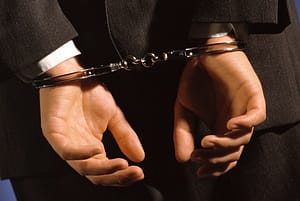As unfortunate as it is, it is indisputable that the passing of a loved one can cause problems and disputes between their friends and family. Another unfortunate reality is that the costs of such issues can quickly spiral to exorbitant amounts. These expenses can quickly eat into the value of the estate, causing problems for all parties involved.
However, disputes do arise relatively frequently, and when they do, they need to be resolved. Two main arguments can occur after the passing of a loved one. The first involves issues related to the validity of the will itself. Secondly, disputes can arise when there are concerns about the administration of the estate of the deceased.
Read on for more information about the disputes that can occur in the wake of someone’s death and how they can be resolved.
What is contentious probate?
Any dispute about administering an individual’s estate after their death could be described as contentious probate. Contentious probate proceedings invariably require the assistance of legal professionals.
As a result, if you are in a situation where disputes have arisen over the validity of a will, you will likely require the services of contentious probate solicitors like Hugh James. For more information about what is contentious probate, have a look at this article.
Contesting a will in the UK
If someone decides to contest the will or the administration of an estate, they have to petition the Probate Registry for a “caveat”. This will prevent a court from granting probate to the executor for six months. This can be renewed, but if it is not, it will expire, and probate can then be granted.
When a caveat is granted, the executor will need to attempt to resolve the problem with the claimant. If this is fruitless, the executor will issue a warning to the Probate Registry, which will trigger the beginning of court action. This will require legal advice and could lead to significant expenses, so steps should be taken to avoid this if at all possible.
Issues with the will
The executors of a will are responsible for the estate, the deceased’s assets, and obtaining probate (the process whereby a will is “proved” in court) before distributing inheritance to the named beneficiaries. Much of the administrative process is rigorously regulated legally.
The will is no exception, and the executor has a legal obligation to follow the instructions set out in a valid will or risk being held personally liable. However, during the execution of a will, problems will often arise that can hinder the distribution of the estate.
What if there is no will?
Sometimes, a person will pass away without ever having made a will. However, disputes can arise in some cases if an individual insists they did write one, but it cannot be found. In such an event, a thorough search of their property will need to be carried out. If this is unsuccessful, the solicitors and banks that handled the deceased’s affairs will need to be contacted to continue the search.
If no will is found, the rules of intestacy will apply, determining the estate’s rightful heirs.
Was the will correctly signed?
The will needs to be carefully checked after an individual has passed. The testator’s signature (will writer) should be verified, and the document should also have been signed by two witnesses who are not named as beneficiaries in the will.
If the executor has any suspicions about the document’s signing, they will check with the witnesses to ensure that everything was done by the book. If the will hasn’t been correctly signed or witnessed, the Probate Registrar could declare it invalid.
Is there a date on the will?
If there is no date on the will, there could be complications with the distribution of the estate. If this is the case, the witnesses will be asked when they saw the testator sign the document. The Probate Registry will then ask the witnesses for an affidavit to explain the absence of the date.
Suppose there is evidence that the will has been altered or an additional article has been included. In that case, a solicitor will be able to offer advice about whether it should be included.
Problems with the testator
In addition to the issues that can arise with the will itself, there may also be disputes over the testator’s capacity at the time the will was written. For a will to be valid, the deceased must have understood what they owned, the intent of the will, and recognised the people they are responsible for.
If the executor believes the deceased lacked testamentary capacity, they will need medical proof to support their claims and should seek legal advice to begin a probate dispute.
Was the testator under inappropriate influence?
If there is a suggestion that the testator was under undue influence, an individual may begin challenging a will in the UK. There are distinct requirements that any individual trying to prove this was the case must provide concrete evidence. This evidence should demonstrate that the testator was under the influence of force, fear or fraud while writing and signing their will.
Is the will unjust?
Suppose all beneficiaries agree that the will (or intestacy) did not make an even provision for all interested parties. In that case, it may be possible to enter into a deed of variation. This can change the will or intestacy rules.
For this to take place, the steps must be taken within 24 months of the death. Additionally, if the variation is to alter the share of a beneficiary under the age of 18, the consent of a court is required. As with many other disputes, you should seek legal counsel if the beneficiaries wish to enter such a contract. Should it be impossible to reach an agreement, the matter will need to be settled in court.
Other problems that can arise
Many other problems with probate may arise during the execution of a will. For example, it may be a challenge to find the beneficiaries listed in the document. This will require some sleuthing, whether it’s on the internet or with genealogists. Ultimately, the executor of the will has a responsibility of care to the beneficiaries of the will, so they must make a reasonable effort to contact everyone entitled to an inheritance.
Additionally, disputes could arise if a beneficiary is bankrupt or due to become bankrupt. In this case, the executor must distribute the payments to the person’s trustee in bankruptcy. Again, this will require a discussion with a solicitor.
Conclusion
In summary, the scenarios outlined above detail some of the situations in which disputes can arise after the passing of a loved one. While most people would prefer to avoid such a situation, they are more common than one might think. In the event of disputes, it is always best to seek legal advice and begin to collect evidence that supports your claims. This doesn’t mean the matter will necessarily go to court, but it can put you in the best position should any mediation stages fail.






Leave a Comment